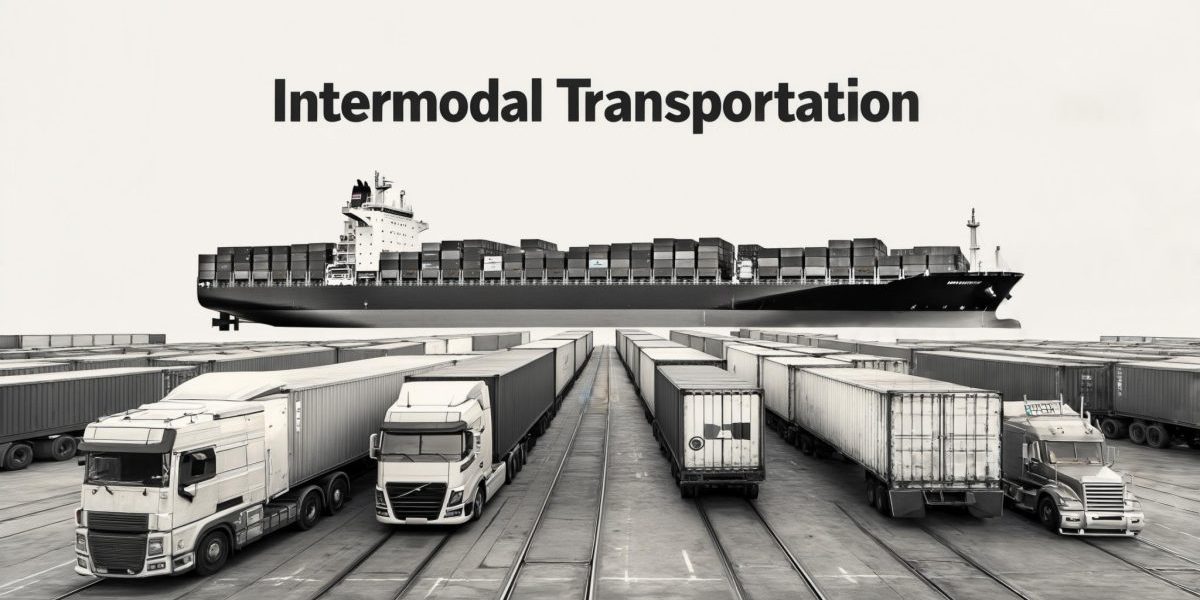The Importance of Intermodal Transport in Maritime Logistics
Have you ever wondered how the products we consume get into our hands? The answer often lies in intermodal transport. This system combines different modes of transport to move goods from one place to another, making maritime logistics more efficient and effective. In this article, we will explore why it is crucial in today's world.
What Is Intermodal Transport?
Intermodal transport refers to the use of more than one mode of transport to get goods from point A to point B. This can include ships, trains, trucks and even airplanes. This can include ships, trains, trucks and even aeroplanes. The idea is that each mode of transport is used at its strongest point, thus optimising the delivery process. For example, goods can be transported by ship to a port and then moved by truck to their final destination.
Benefits of Intermodal Transport in Maritime Logistics
One of the main benefits of intermodal transport is cost reduction. By combining different modes of transport, costs can be minimised and efficiency maximised. In addition, by using ships, large volumes of goods can be moved at once, which is less costly than shipping everything by truck.
Time Efficiency
Speed of delivery is another crucial aspect. In today's global trade, customers expect their goods to arrive quickly. With intermodal transport, by combining ships and trucks, waiting times can be reduced and customer service improved. This is especially important for perishable or high-demand products.
Carbon Footprint Reduction
In a world where sustainability is increasingly important, intermodal transport also helps to reduce the carbon footprint. By optimising routes and using ships for long distances, the use of fossil fuels is reduced. This not only benefits the environment, but can also improve the company's image in the eyes of its customers.
The Role of Logistics in Intermodal Transport
Logistics is at the heart of intermodal transport. Without good planning and execution, the system would not work. This involves managing everything from baggage handling to customs clearance. Each stage of the process must be coordinated to avoid delays and ensure timely delivery of goods.
Goods Handling Services
In intermodal transport, the handling of goods is essential. This includes everything from loading and unloading in ports to the storage in warehouses. Good handling ensures that products arrive in optimal conditions. At Cemesa, we offer handling services that guarantee safety and efficiency at every step of the process.
The Importance of Digitisation
Digitalisation is revolutionising maritime logistics. Today, companies can track their goods in real time, making it possible to foresee problems before they occur. Going digital means improving transparency and communication throughout the process, which is crucial for the success of intermodal transport.
Crew Assistance and Medical Services
A lesser known but equally important aspect is crew assistance. On long journeys, it is vital to provide medical services and ensure that the health of the crew is a priority. This includes everything from medical care to first-class hotel accommodation, all part of well-planned logistics.
Conclusion
The importance of intermodal transport in maritime logistics cannot be underestimated. Through the combination of different modes of transport, greater efficiency, cost reduction and lower environmental impact are achieved. At Cemesa, we are committed to offering innovative solutions that benefit our customers and the planet. Maritime logistics is the future and intermodal transport is your path to success.
For more information about our services and how we can help you in your supply chain, please do not hesitate to contact us. We are here to optimise your maritime operations.


